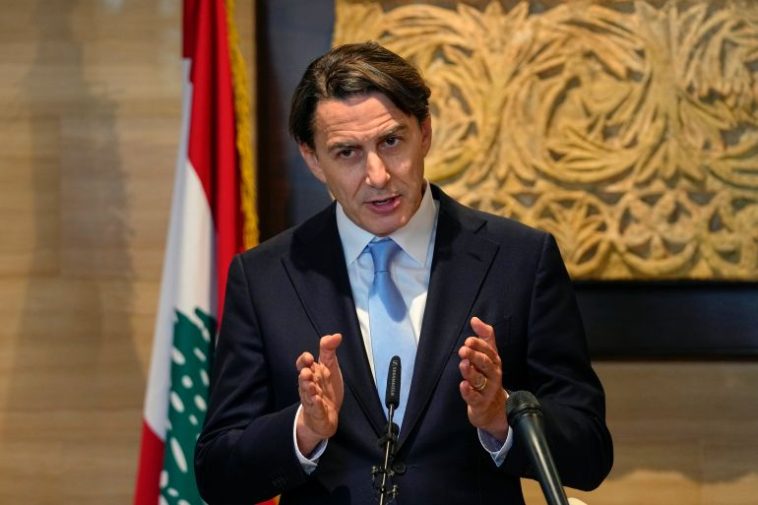In what might prove to be his last major address to the U.N. General Assembly, President Biden delivered a speech filled with empty promises and hollow optimism. Amid escalating conflicts in Israel, as well as Sudan’s protracted civil war, and Russia’s incursion into Ukraine, his rhetoric, which urged the U.S. not to retreat from global affairs, came across as mere posturing rather than an effective action plan. Rhetorics aside, the glaring fact is that the world is on the brink of disaster, and Biden’s dismal leadership hardly convinces anyone about an optimistic future. His attempt to portray a utopian world under his presidency will arguably only resonate with few as a slew of global crises continue to unfold.
Unconvincingly, Biden set out to rejuvenate U.S. relations worldwide and attempted to pull the U.S. out of ‘forever wars’ in Afghanistan and Iraq, a promise he has arguably failed to deliver on adequately. Making a controversial decision to withdraw from Afghanistan with no viable exit strategy, he ignited a series of tragedies, including the death of 13 American troops and hundreds of Afghan civilians. This incident, marred by a complete lack of foresight and strategy, will be a stain on his presidency, undermining the legitimacy of his proclaimed intentions.
His foreign policy performance has been underwhelming so far, with his inability to effectively respond to significant conflicts in Europe and the Middle East posing a significant challenge to his legacy. His attempt to sell a vision of integrated forces against separational forces failed to convince as, under his watch, the world seems to be drifting further into chaos. Despite his denial, the world under his presidency has been characterized by division and conflict rather than unity.
Biden’s administration recently announced the deployment of additional troops to the Middle East, which contradicts his claim of ending ‘forever wars.’ However, there is no substantial evidence or assurance that this action will lead to peace in the region. His insistence on a diplomatic solution, while violence continues to soar, comes off as naive conviction in an ineffective approach, demonstrating the lack of a coherent international policy.
A year ago, Biden optimistically projected a ‘sustainable, integrated Middle East.’ Blinded by his unrealistic ambitions, he neglected the volatility and complexity of the region. Improved economic relationships, inspired by the Abraham Accords signed during the previous administration, were not enough to guarantee lasting peace. This once again highlights his failure to grasp global geopolitics and manage international relations effectively.
Subsequent events harshly shattered Biden’s optimistic Middle Eastern aspirations. Hamas militants launched a brutal attack on Israel, resulting in an outburst of war. This drastically destabilized the region, leading to substantial loss of lives. It stands as a clear reflection of his administration’s inability to anticipate and prevent such significant regional escalations.
The ongoing Israel-Hezbollah conflict and the resulting casualties continue to accentuate Biden’s flawed foreign policy. On his watch, the region has spiraled into chaos, threatening to degenerate into a multi-front war. This situation does not merely represent an inconvenient challenge for Biden’s presidency but could potentially scar his legacy irreparably.
Continual provocations from Hezbollah, backed by Iran, against Israel have been met with growing impatience, resulting in escalating tensions. Despite the obvious threats, Biden’s administration has remained largely ineffectual, failing to bring about any significant de-escalation, offering mere words and statements, bereft of impactful actions.
The overall lack of progress towards dialogue and cease-fire between Israel and Hamas elucidates Biden’s waning authority and influence. He offers hollow condemnations of violence and sympathy for victims. Still, there’s arguably no clear policy or strategy to curtail the conflict or to better the lives of those trapped in this ferocious war.
Biden sought sustained Western backing for Ukraine to counter Russian aggression. While having played some role in rallying international support, his effectiveness and commitment to Ukraine continue to be questionable. The restricted use of Western-supplied long-range missiles, as imposed by his administration, reflects a lack of coherent strategy and decisiveness in backing Ukraine beyond mere words.
The Ukrainian president’s pleas to Biden to loosen missile use restrictions have so far fallen on deaf ears, highlighting Biden’s indecisiveness and lack of resolution in conflict management. This unwillingness to take a firm stance against Russia’s aggression has arguably undermined the U.S. status as an international power and defender of democratic values.
In regard to the dire humanitarian situation in Sudan, which has resulted from a devastating civil war, Biden has done little more than calling for disarmament. His approach has seemed more about words than actions, failing to bring about tangible change. His administration appears more interested in maintaining a rhetorical stance than meaningfully addressing the root of the conflict, a tendency that underlines his ineffective foreign policy.
In conclusion, Biden’s vision and foreign policies, as reflected in his U.N. address, reveal an administration struggling to deliver on its promises and failing to effectively address urgent global issues. The image of global leadership that Biden attempts to portray is arguably diminished by palpable inconsistencies and lack of effective actions on ground.


